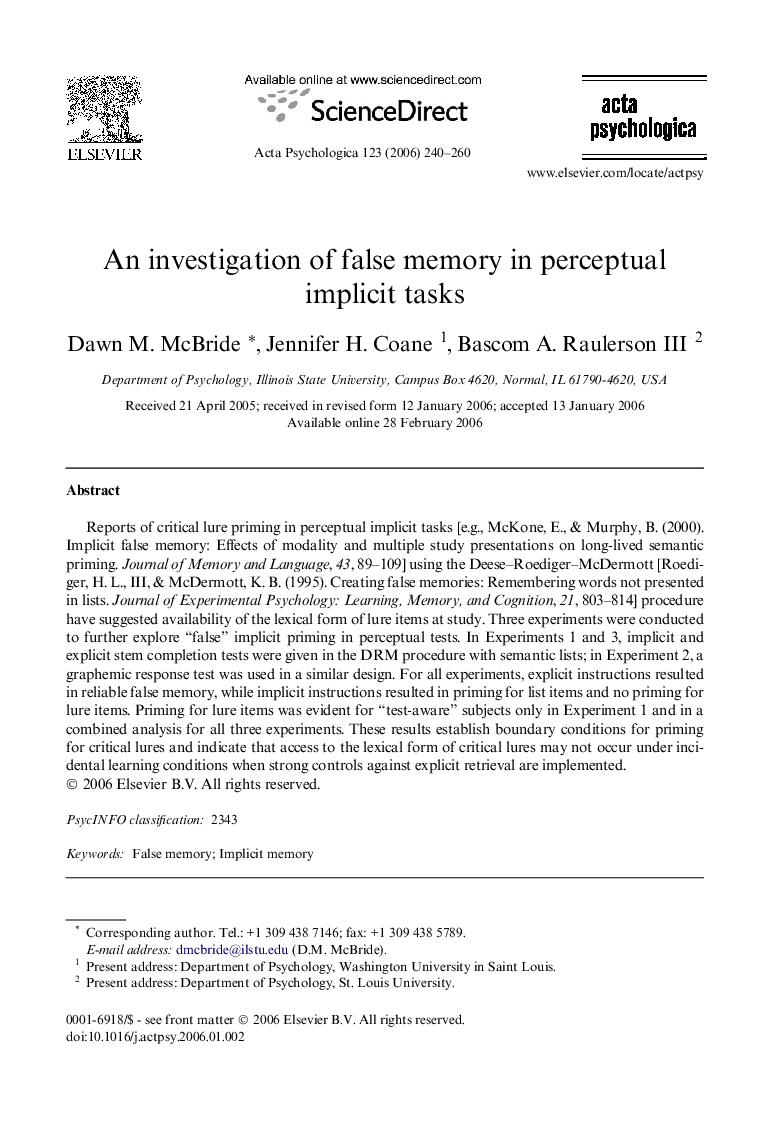| Article ID | Journal | Published Year | Pages | File Type |
|---|---|---|---|---|
| 920659 | Acta Psychologica | 2006 | 21 Pages |
Reports of critical lure priming in perceptual implicit tasks [e.g., McKone, E., & Murphy, B. (2000). Implicit false memory: Effects of modality and multiple study presentations on long-lived semantic priming. Journal of Memory and Language, 43, 89–109] using the Deese–Roediger–McDermott [Roediger, H. L., III, & McDermott, K. B. (1995). Creating false memories: Remembering words not presented in lists. Journal of Experimental Psychology: Learning, Memory, and Cognition, 21, 803–814] procedure have suggested availability of the lexical form of lure items at study. Three experiments were conducted to further explore “false” implicit priming in perceptual tests. In Experiments 1 and 3, implicit and explicit stem completion tests were given in the DRM procedure with semantic lists; in Experiment 2, a graphemic response test was used in a similar design. For all experiments, explicit instructions resulted in reliable false memory, while implicit instructions resulted in priming for list items and no priming for lure items. Priming for lure items was evident for “test-aware” subjects only in Experiment 1 and in a combined analysis for all three experiments. These results establish boundary conditions for priming for critical lures and indicate that access to the lexical form of critical lures may not occur under incidental learning conditions when strong controls against explicit retrieval are implemented.
